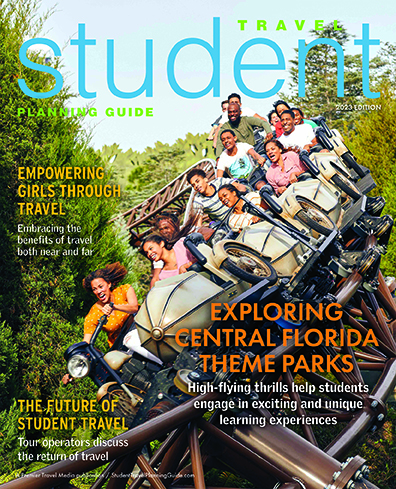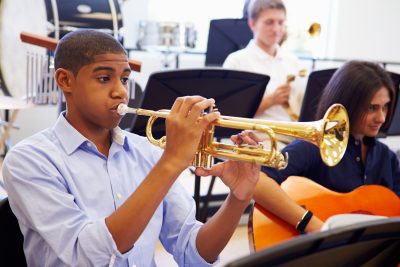Students today travel all of the time. Maybe it’s the sports team or band and choir traveling, but these are traveling groups. Their travel may not be under the heading of a travel club, but nonetheless they are traveling. Riding on chartered coaches, overnighting in hotels, eating meals on the road and visiting attractions, all while chaperoned by school personnel, can be a rewarding experience.
A school travel club can level the playing field or students who are not athletically or musically inclined. Maybe a student simply has an interest in history or science, or maybe vocations such as the trades or farming. Perhaps these same students would love the opportunity to travel to a new place, visit historical sites that they read about in a textbook, research architecture beyond their community or discover new farming methods in diffe ent regions of the country or world—the educational possibilities are endless.
Student Travel Clubs Build Social and Emotional Confidence
A travel club is a unique learning experience. The best clubs are those that encourage all to join, offer uniqu and interesting destinations that span a wide variety of interests and allow peers to budget and raise funds necessary for the trip. All of these learning tools build confidence and einforce positive social emotional behavior. Students will learn about themselves, others and the world beyond their doors. A travel club may even be a motivator for a student who is academically challenged. Academic success can be linked to student depression or even isolation. Students who feel either of these emotions may not see the reason for taking their education seriously. They fall behind because they do not feel connected. A travel club inherently builds connections which can help alleviate depression and the feeling of isolation.
Consider a Services Learning- Based Student Travel Club
There are many reasons why educators may want to start a student travel club in their community, with many of the reasons why schools should support such an endeavor already discussed in this article. Another lens for student travel is focusing on a service- based student travel club. In a recent interview with Ida Fiore, science teacher at Northwoods Junior High School in the Chicago suburbs, and cofounder of SaLT, she offers the ollowing: “A service-learning-based club combined with travel experiences to other communities can be a powerful catalyst in changing students’ lives. A service-learning club prepares students to understand why specific needs xist and how their acts of service will make a diffe ence.
Students are challenged to learn empathy – not sympathy – for others as their service efforts becom a part of the greater good in this world. Students show growth in personal acts of compassion and words of gratitude as they create a ripple effect. hey are, in fact, changing the world by changing their world. When quality service-learning takes place, everyone benefits. “However, all of these dynamics are enhanced even further when travel to other communities is introduced. The SaLT (Service and Learning Together) organization, based in the northern suburbs of Chicago, does just this. Not only do students engage in local service projects throughout the Chicagoland area, they truly make this world a better place, one connection at a time.”
Starting a service club may be a way that educators can approach the idea of a student travel club within their school. Travel can begin close to home, servicing local needs and perhaps branch out to other destinations, serving communities across the country and beyond.
Student Travel Clubs as Vocational Training.
student travel club could also serve as vocation training in the tourism industry. Many cities, states and countries list tourism as the second- or third-largest contributor to their economy. Ask any student in 8th -12th grade about today’s top industries, as I have, and less than one percent will respond with tourism. They don’t really know it exists. A student travel club can open their eyes to this robust part of most of the world’s economies. An introduction to the industry, let’s call it Tourism 101, should be a part of every student travel club member’s orientation.






